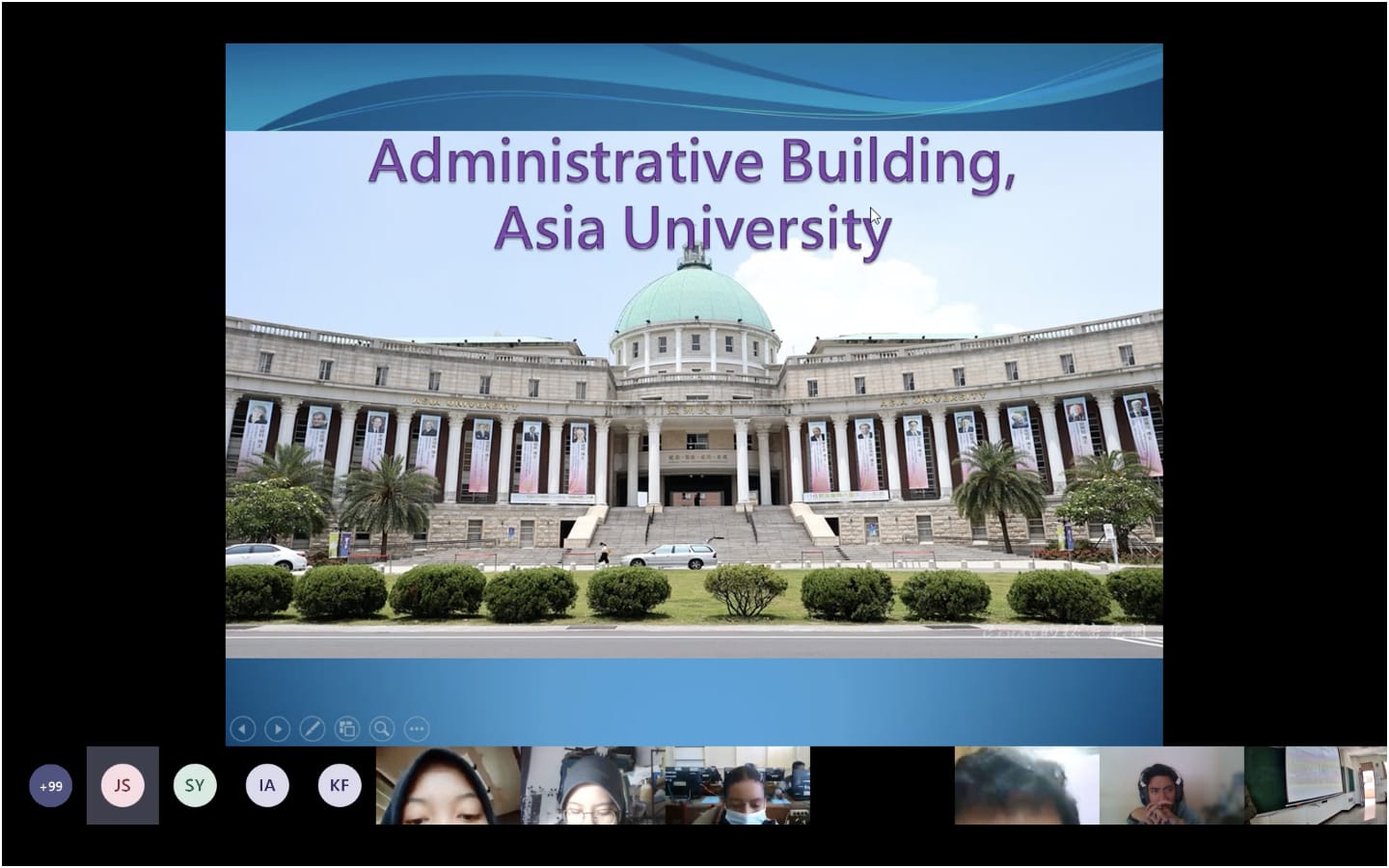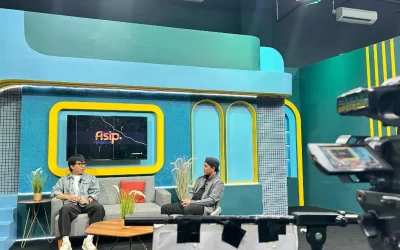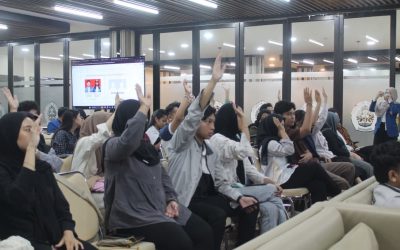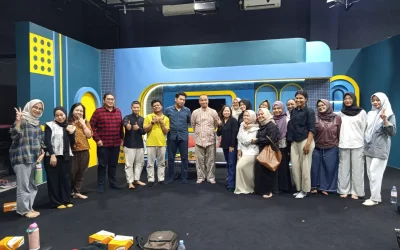Documentation on the introduction of Asia University (Photo : Marcella Vyskarrin)
Semarang – The Covid-19 pandemic has not restricted FISIP Undip students (Faculty of Social and Political Sciences, Diponegoro University) from participating in lectures from overseas campuses.
Asia University, as the organizer of the Virtual Exchange Summer program, has provided opportunities for ten students of the Communication Studies Program from 2019 2020, and 2021 batches.
They are Salma Nadira Yasmin, Salsa Nurul Syifa, Andrea Caroline, Salma Nadira Yasmin, Salsa Nurul Syifa, Salsa Amalia Zulhidayati, Vania Alyanissa, Andrea Caroline, Tjen Jocelyn Ivanna, Naura Iftika Ramadhani, Marcella Vyskarin and Naufal Abiy.
This opportunity provides an opportunity for students who want to experience the online learning process in Taiwan for 1 semester, starting from February 14, 2022, to June 18, 2022.
The fees for this program are $200 – $250, but the collaboration between Undip and Asia University makes that students don’t have to pay any fee.
The registration flow that is passed in this program is quite easy, that is, just by filling out an excel form containing the data that has been provided. However, there are important things that need to be considered, namely elective courses that must have been approved by the Head of the Communication Studies Study Program.
Salsa, a student exchange program participant from Communication Studies batch 2020, admitted that the Department of Communication plays a very important role in assisting the registration process, starting from aligning the IRS (study plan entry) to determining whether the courses taken are following SKS (semester credit units) that you want to convert until the acceptance process.
On the other hand, the department revealed that there are several problems during the filling process.
“There were some students who were confused about writing their department. They wrote the wrong department because many students from other departments were also following this program. Some were not detected as Communication Science students but were registered as students of other departments. It made us a little confused,” said Amida Yusriana as a member of the International Office of FISIP.
In addition, another obstacle that occurs is that several student elective courses do not yet have learning objectives similar to those applied by Diponegoro University.
This problem later can be resolved by holding a meeting between the Head of Study Program and students to dissect the courses one by one so it can be decided whether the courses can be converted or not. The department carefully examines this matter because they do not want students to be left behind even if it is only one course.
Despite some of the obstacles above, Caroline, a student exchange program participant from Communication Studies batch 2019, revealed that she was still excited to join this program. This enthusiasm departs from the motivation to want to take advantage of opportunities that will not come twice to her desire in experiencing study abroad in Taiwan, the owner of an excellent higher education system.
“So far, I have had different insights and experiences. I took the Multiculturalism & Global Perspective course which, if converted to a course at Undip, is related to cultural communication. By taking this course in Taiwan, I feel that I will also be able to get a perspective on different cultures,” she added.
Furthermore, Caroline explained that she was very enthusiastic about joining this program because even though it was carried out online, this program still felt fun. She also briefly explained how the learning system has been running for about half a month.
“During the lesson, as far as I have followed, the lecturer or professor delivered material directly from the class there. So, we also joined some students who were offline in Taiwan. The material presented has also previously been distributed to students through an application recommended by them called Tron Class.”
“One virtual class consists of around 130 students and some of them are from India. Because this is indeed an exchange class, so the delivery of material is certainly not in Mandarin, but in English,” she explained.
She also added that during the 2 hours of learning, there is one short break of 15 minutes which is used to watch videos related to the learning context material at that time.
Learning activities between lecturers and students have taken place interactively, both with students who are in class, and those who study online.
Amida hopes that all participants of the Asia University 2022 Virtual Exchange Spring Program, both IUP and regular students, will be able to get refreshment from the learning process.
Not only that, she hopes that students can feel how the learning situation in other countries is, how lecturers in other countries teach, and how the examples of material are taught so that it is hoped that students’ insight can increase.
Reporter: Hikmatul Mufarichah / Alivia Nuriyani Syiva / Almira Khairunnisa
Writer: Risa Nurhaliza
Editor: Langgeng Irma Salugiasih





0 Comments